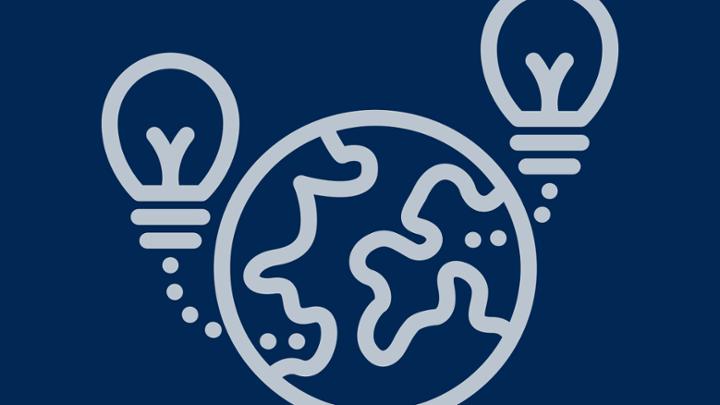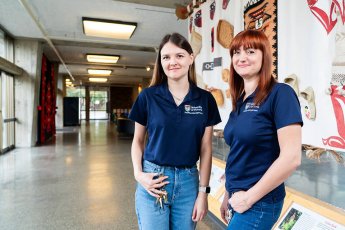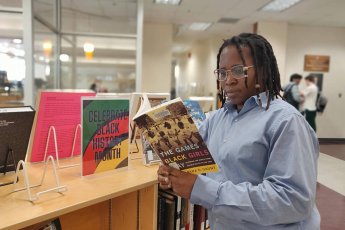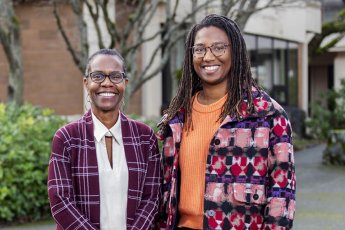VPAC's commitment to equity, diversity, inclusion & anti-racism
Equity, diversity and inclusion are core values at UVic and form the foundation on which we do our work and interact with others. They are central to our university plans, and we each have a responsibility to create an equitable, diverse and inclusive community.
Much has been done to advance this work at UVic, yet faculty, students and staff continue to face multifaceted systemic barriers. Racism, discrimination and intolerance cannot under any circumstances be overlooked. Words and short-term actions are not enough to bring about systemic change. We must work together to identify and address barriers that impact members of our community. In this regard, VPAC is enhancing its efforts to make UVic a safe and healthy place for everyone.
Advancing the Equity Action Plan
In 2022, UVic launched the Equity Action Plan, intended to create the conditions in which everyone feels a sense of belonging as connected and respected parts of the university community. In developing the plan, Equity and Human Rights worked with leaders, faculty, staff and students using equity-centred design principles and process to co-create five universal goals and targeted actions to address identified barriers to achieving equity.
Here are some examples of how VPAC is advancing the five goals of the Equity Action Plan.

Equity-centred culture
- Academic units must address how proposed programs or changes promote justice, equity, diversity and inclusion and whether there are opportunities to include perspectives on decolonization of the curriculum and/or program. IACE is consulted on all program developments and redesigns.
- VPAC prioritizes equity-centred training for faculty and staff, including Indigenous Cultural Acumen Training; Equity in Decision-Making Processes; Anti-Racism Awareness Workshops; and more.
- Faculty and staff are encouraged to decolonize their curriculum and other academic offerings through Indigenous and anti-racism grants.

Relationality and belonging
- Supportive Communities provides peer support opportunities for faculty and librarians from marginalized groups.
- Joint Faculty Mentorship Committee provides workshops and mentorship for early and mid-career faculty, including Indigenous and BPOC mentors and an Indigenous-focused workshop.
- Student Affairs integrates an anti-oppressive and anti-racist lens into student services and supports the prioritization of voices and perspectives of students from equity-deserving groups.
- We're naming our two new student housing buildings and renaming Lansdowne Residence #1 in consultation with Indigenous communities and leaders.
- Distinguished Women Scholars encourages units to nominate visiting lecturers that promote our commitment to EDID.

Recruitment and retention
- Academic units must outline how their hiring priorities and anticipated hiring plan support employment equity during external reviews.
- Student Affairs is working with IACE to develop and implement specialized Indigenous support roles.
- VPAC works closely with Human Resources and Equity and Human Rights to ensure that available tools are used for fair and equitable hiring practices.
- Faculty Relations is developing a “Valuing and Evaluating Indigenous Scholarship” module for Appointment, Reappointment, Promotion and Tenure committees.
- The Advocacy and Activism Award and Award in Engaged Scholarship are examples of how VPAC acknowledges and profiles exceptional scholars advancing work in these areas.
- Our student recruitment targets are being achieved, in part, through K-12 pathway programs like Indigenous Mini U, HighTechU and Science Venture, as well as through scholarships, bursaries and other awards.

Access and support
- VPAC focuses on supports to make experiential learning accessible. Examples include financial support for students participating in practica or internships outside Victoria and a wage subsidy program for Indigenous co-op student placements with Indigenous community organizations.
- UVic prioritizes financial supports for Indigenous students including increasing scholarships and bursaries.
- UVic offers the Youth in Care Award for students who spent time in the government care system. Funding assists eligible students with tuition, fees, books and/or living expenses.
- Vikes, working with units like CanAssist, has established UVic as a leader in accessible, inclusive athletic and recreational programming, including adapted strength and conditioning, wheelchair basketball, wheelchair tennis, blind soccer and inclusive spin classes. Just for Kicks is a volunteer-led, free indoor soccer program for children with special needs.

Institutional accountability
- VPAC is participating in a data project to explore and implement the collection of demographic data. Collecting this data will help in conducting evaluations of the outcomes of the Equity Action Plan.
- Equity, diversity, inclusion and decolonization elements are built into our accountability and reporting structures, including in academic program reviews.
- Equity data is included in several of our annual reports to the Board of Governors, including the Academic Staffing Report, Report on Student Financial Aid, and Enrolment Analysis Report.



